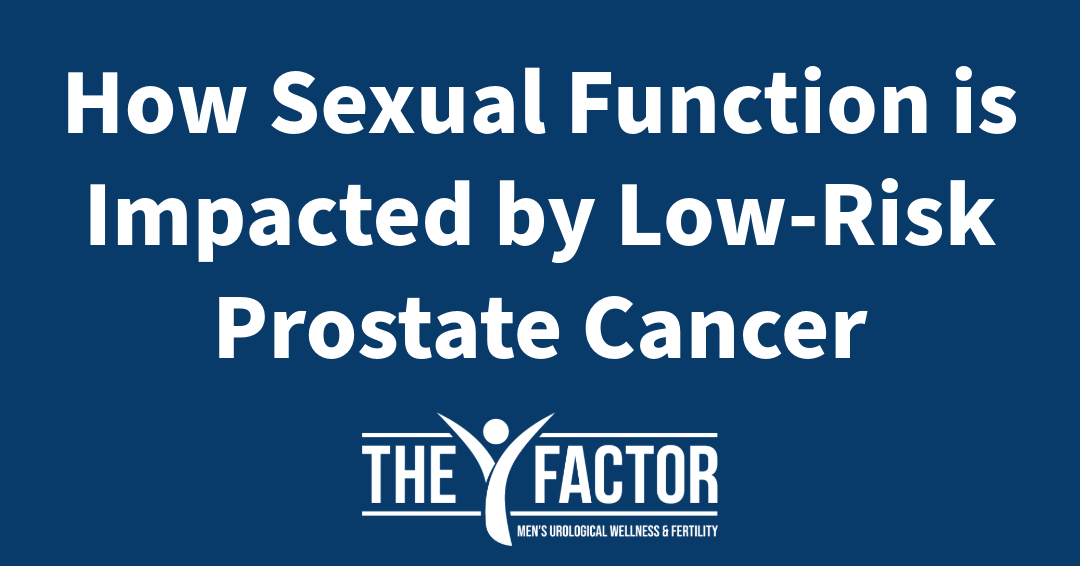Signs of Prostate Issues


In men, a little gland with a walnut-like form called the prostate is below the bladder. It contributes significantly to the male reproductive system by creating a fluid that feeds and shields sperm. Men’s prostates may expand or inflame with age, resulting in several prostate problems.
The following signs could be a clue that you have prostate issues:
- Regular urination: Urinating regularly, especially at night, is one of the most typical indicators of prostate issues. This is because a swollen prostate can restrict the urethra and bladder, making it challenging to empty the bladder.
- Trouble starting or stopping urination: If you have trouble starting or stopping urination, or if the stream of your pee is weak or interrupted, this could indicate prostate issues. Again, this is because the urethra can become compressed by an enlarged prostate.
- Pain/ Discomfort Urinating: Pain or discomfort during urinating can indicate various prostate issues, such as prostatitis (prostate gland inflammation). A doctor should be seen as soon as possible if you have pain or discomfort while urinating.
- Blood in urine or semen: The presence of blood in the urine or semen might indicate several prostate problems, such as an infection or prostate trauma. It is crucial to consult a doctor immediately if you see blood in your urine or sperm.
- Erectile Dysfunction (ED): ED can be a symptom of several prostate conditions, such as prostate inflammation or an enlarged prostate. Discussing the potential underlying causes of ED with your doctor if you experience it is crucial.
- Pain or discomfort in the lower back, hips, or thighs: Lower back, hip, or thigh pain or discomfort may indicate that prostate cancer has migrated to adjacent bones. If you have these symptoms, seeing a doctor as soon as possible is crucial.
- Leg or foot weakness or numbness: Leg or foot weakness or numbness may indicate spinal cord metastasis of advanced prostate cancer. You should seek medical help right away if you develop these symptoms.
- Unexpected weight loss: Unexpected weight loss may indicate advanced prostate cancer or other major health problems. Contacting a doctor is crucial if you’re losing weight unexplainably.
- Trouble obtaining or sustaining an erection: Problems obtaining or maintaining an erection may indicate several problems with the prostate, such as an enlarged prostate or prostate inflammation. It is critical to discuss the potential underlying issues with your doctor if you have erection problems.
- Overall tiredness or weakness: General tiredness or weakness can indicate various health problems, including prostate problems which disrupts night time sleep. It is crucial to visit a doctor to rule out any primary underlying health conditions if you experience weakness or weariness that other variables cannot explain.
- Painful ejaculation: The presence of painful ejaculation may indicate several prostate problems, such as an infection or inflammation of the prostate gland. It is crucial to visit a doctor if you encounter pain during ejaculating.
- Urinary incontinence: Loss of bladder control, often known as urinary incontinence, may indicate an enlarged prostate or overactive bladder from prostate inflammation. Discussing urinary incontinence with your doctor if you are having problems is crucial.
- Urinary retention: Urinary retention happens if you cannot empty your bladder. This can indicate a prostate condition, such as enlargement. It is crucial to visit a doctor if you have urine retention.
- Foul-Smelling Urine: Urinary tract infections and other prostate problems can be indicated by foul-smelling urine. It is crucial to visit a doctor if your urine smells strong.
- Reduced urine flow: A reduced urine flow may indicate an enlarged prostate or other problems relating to the prostate. You should consult your doctor right away if you discover that your urine flow is weaker than usual.
- Bone pain: The spread of advanced prostate cancer to the bones may be indicated by bone pain. You should consult a doctor right away if you have bone discomfort.
- Reduced sexual desire: Reduced sexual desire may indicate several medical conditions, including excessive nighttime urination from prostate problems. It is critical to visit a doctor if you have observed a decline in your sex drive.
- Pelvic pain or discomfort: Pelvic pain or discomfort might indicate prostatitis an enlarged prostate. Discussing your concerns with your doctor if you have pain or discomfort in the pelvic region is crucial.
It is crucial to contact your physician as soon as possible if you have any of these signs or symptoms. If you have concerns about the health of your prostate, do not wait to contact a doctor. Many prostate diseases can be easily treated if they are discovered early. Your doctor can do several tests to identify the underlying reason behind your symptoms and suggest an effective treatment strategy.
Contact Us Today
If you experience any of the signs mentioned above or symptoms you may have prostate issues, getting medical assistance as soon as possible is crucial. Men’s health, especially prostate problems, is the focus of the medical practice at The Y Factor. We provide thorough assessments and care programs that are customized for each patient.
Our urological influenced method guarantees a diagnosis based on the root cause of your health issue. Our ability to provide treatments that improve your vitality and quality of life depends on our ability to pinpoint the cause of your health problems.
Visit our website or call our office at (888) 936-7527 to learn more about The Y Factor or make an appointment. Prostate problems are common as men age but are frequently treatable if detected early. If you see any of the symptoms or indicators listed above, do not wait to get help from a doctor.

Select Your Men's Health Specialist, Book Instantly
Find expert urologists and men's health professionals who understand your unique needs.
Our streamlined platform helps you connect quickly and confidentially.
Personalized Treatment Plans
Receive tailored recommendations and therapies specifically designed to address your individual health needs.
Ongoing Support & Follow-up
Benefit from continuous care, including regular progress reviews and expert guidance throughout your wellness journey.

.jpg)
.jpg)
.jpg)








